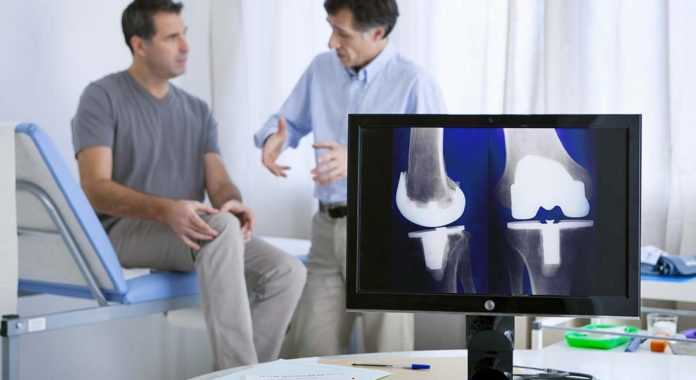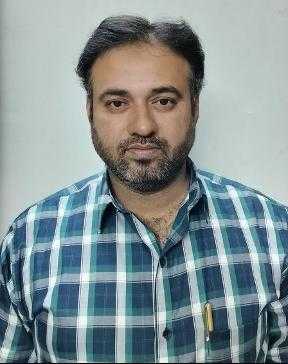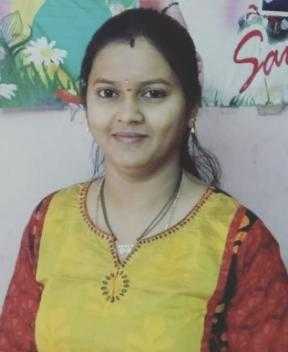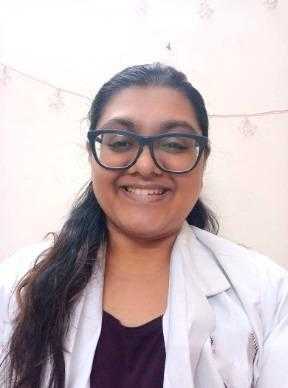
Expert Physiotherapy at Home
Certified physiotherapists visit you at home to provide focused, one-on-one care tailored to your needs. With no travel or waiting rooms, recovery happens in a setting that is comfortable, familiar, and built around your convenience.
Personalised Recovery Programmes
Every treatment plan is designed to suit your condition, goals, and pace. Our physiotherapists follow structured, evolving protocols to ensure consistent progress, with each session aligned to deliver meaningful results.
Trusted Physiotherapists. Real Results.
Our team comprises experienced, background-verified physiotherapists trusted by thousands of families. With a strong focus on safety, reliability, and clinical outcomes, we make recovery at home both effective and reassuring
Patient Testimonials
Portea Physiotherapists for Home Visits
Meet some of our experienced and dedicated healthcare professionals

Dr. Lokesh G
Physiotherapist
Specializations
Experienced in Neurological rehabilitation, Orthopaedic physiotherapy, and Paediatric care
Delivers structured, high-impact treatment plans across neuro, ortho, and paediatrics—ensuring safety, comfort, and measurable recovery at every stage.

Dr. Mohammed Sarwar
Physiotherapist
Specializations
Experienced in Neurological rehabilitation, Adult physiotherapy, and Paediatric care
Combines deep clinical expertise with a compassionate approach, supporting both adults and children through neuro and physical rehabilitation that promotes long-term independence and recovery.

Dr. Nelapati Divya
Physiotherapist
Specializations
Skilled in Orthopaedic rehabilitation, Manual therapy techniques, and Paediatric physiotherapy
Brings a personalised, hands-on approach to healing—combining structural expertise with paediatric sensitivity to restore movement, relieve pain, and improve everyday function.

Dr. Naveen V
Physiotherapist
Specializations
Trained in Pain management, Cardiac and Orthopaedic rehabilitation, Neurological care, and Neural tissue mobilisation
Brings clinical precision and empathy together—designing science-backed recovery protocols for pain relief, nerve mobilisation, and cardio-neuro-ortho rehabilitation across all age groups

Dr. Miloni Savla
Physiotherapist
Specializations
Holds an MPT in Orthopaedics with a focus on Musculoskeletal rehabilitation and strength recovery
Delivers focused, movement-oriented therapy grounded in orthopaedic science—helping patients rebuild strength, restore function, and return to daily life with confidence
Other Cities
Physiotherapy Treatments

what is physiotherapy for varicose veins?
Physiotherapy for varicose veins is a non-invasive, natural treatment approach designed to improve blood circulation, reduce pain and swelling, and manage the symptoms associated with vein dysfunction. It focuses on stimulating proper blood flow, especially in the legs, and offers a safer alternative to medication or surgery for many individuals.
Around 40% of people over 50 experience some form of varicose veins, and physiotherapy is widely regarded as one of the most effective and sustainable treatments.
benefits of physiotherapy for varicose veins
Physiotherapy provides a wide range of benefits for those suffering from varicose veins, including:
- Improved blood circulation in legs and thighs
- Pain relief from prolonged standing or heavy lifting
- Reduced swelling and discomfort
- Healing without medication or surgical intervention
- Enhanced mobility and leg function
- Long-term prevention of vein deterioration
what causes varicose veins?
Several factors contribute to the development of varicose veins, including:
- Aging – Veins lose elasticity over time
- Genetics – A family history increases risk
- Hormonal changes – Due to pregnancy, menopause, or menstrual cycles
- Pregnancy – Increased blood volume and pressure
- Prolonged inactivity – Sitting or standing for long periods
- Tight clothing – Restricts blood flow
- Obesity – Adds pressure to veins
- Smoking – Damages blood vessels and circulation
- Medical conditions – Like constipation or tumors that increase internal pressure
symptoms of varicose veins
Varicose veins can lead to a variety of symptoms, primarily affecting the lower body. These include:
- Twisted, bulging, dark blue or purple veins
- Aching or heavy feeling in the legs
- Swelling in feet, ankles, or calves
- Muscle cramping or throbbing pain
- Skin discoloration or itching
- Worsening discomfort after prolonged standing
- Venous ulcers in severe cases
- In men, varicoceles (testicular varicose veins) may impact fertility
physiotherapy exercises for varicose veins
Here are effective exercises often recommended during physiotherapy:
1. Walking or Jogging
A daily 30-minute walk boosts circulation and strengthens the calf muscles, which helps push blood back to the heart.
2. Cycling (or Bicycle Leg Exercise)
Using a bicycle or performing a “pedal in the air” movement while lying on your back helps stimulate blood flow in the legs.
3. Leg Lifts
Lie flat, lift one leg slowly upward, hold for a few seconds, and lower it gently. Repeat with the other leg to promote circulation.
4. Lunges
Step forward into a lunge position, creating a 90-degree bend at the front knee. This tones leg muscles and supports venous return.
5. Heel-Toe Rocking
Shift your weight from heels to toes while standing or seated. This simple motion encourages blood flow and reduces pooling.
Note: Exercises should always be supervised by a trained physiotherapist, especially in cases of chronic venous insufficiency.
precautions during physiotherapy for varicose veins
- Always consult a vascular specialist or physiotherapist before starting treatment
- Avoid overexertion or high-impact exercises that strain the veins
- During pregnancy, only perform exercises approved by your doctor
- Monitor for any worsening symptoms and report them immediately
- Wear compression garments as prescribed for better support
additional physiotherapy modalities
In some cases, physiotherapists may use electrotherapy tools like TENS (Transcutaneous Electrical Nerve Stimulation) to:
- Relieve pain
- Improve circulation
- Stimulate muscle activity
These tools are especially helpful in managing symptoms without invasive procedures.
medical treatment options for varicose veins
In moderate to severe cases, additional interventions may be required:
🔹 Conservative Treatments
- Compression stockings
- Leg elevation
- Weight management
- Physiotherapy
🔹 Minimally Invasive Procedures
- Endovenous Laser Therapy (EVLT)
- Radiofrequency Ablation (RFA)
- Foam Sclerotherapy
🔹 Surgical Treatments
- Vein ligation and stripping (used less frequently today)
how portea can help
Portea brings expert physiotherapy for varicose veins right to your home:
- Book physiotherapy for varicose veins treatment at home by Portea, or schedule a online physiotherapy session with our experts for remote care and guidance.
- Certified, experienced, and empathetic physiotherapists
- Use of modern equipment and electrotherapy for safe and effective care
- Customized treatment plans based on individual assessments
- Flexible appointment scheduling and continuous progress monitoring
- Additional support: Doctor consultations, Nursing care, Medical equipment rentals and sales and Trained caregivers.
Book Your Physiotherapy Consultation Today
Experience relief from varicose vein discomfort with Portea’s professional and personalized care. Whether it’s early-stage vein issues or long-term management, we’re here to support your journey to recovery and wellness.
portea’s other physiotherapy services
faq’s
1. What is physiotherapy for varicose veins?
Physiotherapy for varicose veins focuses on improving circulation and strengthening leg muscles to alleviate symptoms. Treatment includes exercises like calf raises, ankle rotations, and walking, which enhance blood flow and reduce swelling. Certified physiotherapists can design personalized programs tailored to individual needs
2. Can physiotherapy help in reducing varicose vein symptoms?
Yes, physiotherapy can significantly reduce symptoms such as pain, swelling, and heaviness in the legs. By promoting better circulation and muscle strength, physiotherapy helps manage and alleviate discomfort associated with varicose veins.
3. Is home-based physiotherapy effective for varicose veins?
Absolutely. Home-based physiotherapy offers convenience and comfort. Certified physiotherapists can visit your home to provide personalized treatment, including exercises and guidance on lifestyle modifications to manage varicose vein symptoms effectively.
4. How long does it take to see improvement with physiotherapy for varicose veins?
Improvement timelines vary based on individual conditions and adherence to the prescribed program. Many individuals report noticeable relief within a few weeks of consistent physiotherapy sessions. However, long-term benefits require ongoing commitment to the treatment plan.
5. When should I consult a physiotherapist for varicose veins?
Consult a physiotherapist if you experience persistent leg pain, swelling, or discomfort associated with varicose veins. Early intervention can help manage symptoms effectively and prevent the condition from worsening.
6. How can I book physiotherapy sessions for varicose veins at home?
Booking physiotherapy sessions is straightforward. Reputable providers like Portea offer certified physiotherapists who can visit your home. You can schedule an appointment by visiting their website or contacting their customer support.
References
Doctor Consultation
Nursing
Physiotherapy
Trained Attendant
Elder Care
Mother & Baby Care
Lab Tests
Medical Equipment
Speciality Pharma
Critical Care




